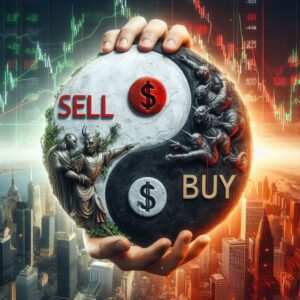The Psychology of Trading: How Emotions Impact Your Decisions

Trading in financial markets is not just about numbers and charts; it’s also deeply influenced by human psychology. Understanding how emotions can impact your trading decisions is crucial for achieving success. In this article, we delve into the psychology of trading, drawing insights from top psychologists and their perspectives on the subject. By recognizing and managing your emotions, you can make more rational and informed trading decisions.
The Role of Emotions in Trading
Emotions play a significant role in trading, often leading to biased decision-making. Driven by fear or greed, traders may deviate from their strategies, make impulsive trades, or hold on to losing positions for too long. As Nobel laureate Daniel Kahneman explains, “We are not thinking machines; we are feeling machines that think.” Recognizing the emotional component of trading is the first step towards overcoming its negative impact.
Daniel Kahneman – Understanding Biases
Daniel Kahneman, a renowned psychologist and economist, sheds light on biases that affect trading decisions. He introduces the concept of cognitive biases, such as the availability bias (relying on readily available information) and the confirmation bias (seeking information that confirms preexisting beliefs). By understanding these biases, traders can strive for more objective and rational decision-making.
Richard Thaler – Nudging Behavior
Richard Thaler, a leading behavioral economist, emphasizes the power of small nudges in influencing behavior. Traders can apply this concept by setting up systems or rules that prevent impulsive actions. For example, using stop-loss orders or implementing pre-determined profit targets can help mitigate the impact of emotions and guide trading decisions based on predetermined strategies.
Paul Slovic – The Influence of Risk Perception
Psychologist Paul Slovic’s research highlights the impact of risk perception on decision-making. Traders often let emotions such as fear or overconfidence cloud their judgment when assessing risks. Understanding one’s risk tolerance and having a well-defined risk management strategy can help traders make more rational decisions, rather than being swayed by emotions.
Nassim Nicholas Taleb – Dealing with Uncertainty
Nassim Nicholas Taleb, a renowned author and risk analyst, emphasizes the role of uncertainty in trading. He notes, “Markets are designed to compensate the impatient and reward the patient.” Successful traders acknowledge the inherent uncertainty of markets and develop strategies that account for potential losses. This mindset allows them to navigate volatility with resilience and make more disciplined decisions.
Van K. Tharp – The Trader’s Mindset
Psychologist Van K. Tharp focuses on the psychological aspects of trading and the importance of developing a trader’s mindset. He emphasizes self-awareness, discipline, and a systematic approach to trading. By understanding their own psychological biases and having a well-defined trading plan, traders can minimize emotional interference and make more objective decisions.
Brett Steenbarger – Performance Psychology
Brett Steenbarger, a leading expert in performance psychology, explores the psychological factors that contribute to trading success. He highlights the significance of self-reflection, mental resilience, and maintaining a positive mindset. Developing routines, practicing mindfulness, and learning from past trades can enhance a trader’s psychological preparedness and decision-making skills.
The psychology of trading is a critical aspect that can significantly impact trading performance. By understanding the role of emotions and the insights shared by top psychologists such as Daniel Kahneman, Richard Thaler, Paul Slovic, Nassim Nicholas Taleb, Van K. Tharp, and Brett Steenbarger, traders can gain valuable perspectives on how to manage emotions, overcome biases, and make more rational decisions. Developing self-awareness, maintaining discipline, and continuously working on psychological aspects can contribute to better trading outcomes. Remember, successful trading involves both understanding the markets and understanding yourself.




